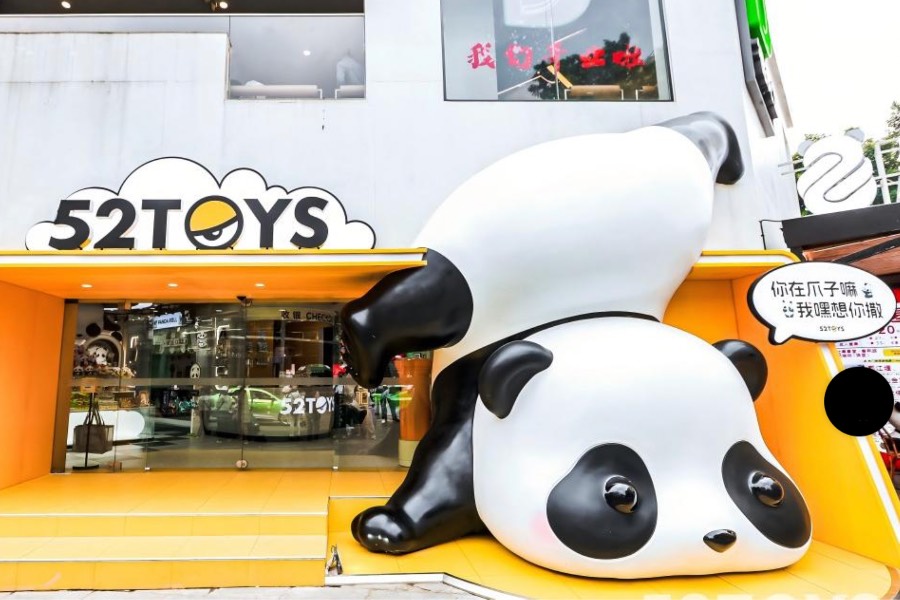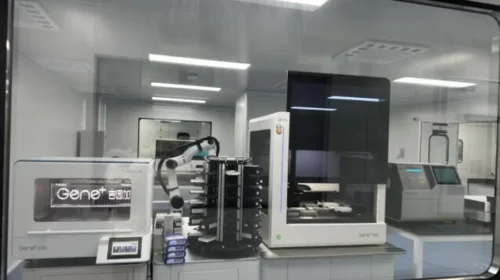Game time for another IPO hopeful in China’s booming toy market

A maker of collectible figurines, 52Toys, is lining up to test investor enthusiasm for play-related stocks after the runaway success of Pop Mart
Key Takeaways:
- 52Toys has posted losses for three years and faces rising market competition
- It sells 35 proprietary toy ranges and licenses another 80 designs from leading brands
By Lau Chi Hang
It could be viewed as a triumph of creativity over hard reality. China’s toy craze has turned one seller of cute figurines into a corporate titan with a bigger market value than some established industrial stalwarts.
After its share price rocketed over the past six months, blind-box pioneer Pop Mart (9992.HK) is now closing in on a market capitalization of HK$300 billion ($38.28 billion), exceeding the combined value of two flagship firms in the property and infrastructure empire of Hong Kong’s richest man, Li Ka-shing.
Not surprisingly, other purveyors of fantasy figures have been looking to replicate the feat of Pop Mart, which made its name by selling mystery toys in sealed boxes. Toymaker Bloks (0325.HK) has seen its share price more than double from its IPO level to enjoy a market value approaching HK$40 billion.
And now Beijing-based 52Toys, a rising star of China’s market in designer toys and desirable figurines, is hoping for a bite of the cherry. Its parent company, 52Toys Development Co. Ltd., just filed for a Hong Kong share listing.
The company was co-founded in 2015 by two businessmen with experience in the toy and game world. Chen Wei was operating a toy store in Beijing’s Drum Tower selling items licensed from the likes of Bandai and Hasbro, while Huang Jin was involved in producing the desktop game “War of Three Kingdoms”.
Their company generates original ideas in house or sells licensed products in deals with major international franchises. By the end of last year, the firm’s 35 proprietary product lines included the cute figures of Nook and Sleep, sci-fi BeastBox toys and the Panda Roll and Modern Ancient ranges inspired by Chinese culture.
The firm’s 80 licensed products cover franchises such as the Japanese manga series Crayon Shin-shan as well as creations from Disney and Warner Bros.
Mounting losses
Over the past three years, 52Toys reported revenues of 463 million yuan, 482 million yuan and 630 million yuan. Last year its original designs accounted for 24.5% of revenue while licensed intellectual property made up 64.5% and external procurements accounted for 10.8% of turnover. The company’s gross margin hit 39.9% in 2024.
Still, its performance is still a pale shadow of Pop Mart’s earnings power. The IPO candidate lost 1.71 million yuan in 2022, 71.93 million yuan the following year and 122 million yuan in 2024, mainly due to fair-value adjustments on financial liabilities. But even taking that hit out of the equation, 60% of 52Toys revenue was eaten up by sales costs. After spending on marketing, administration and R&D, the toymaker eked out just over 30 million yuan in profits.
Finances aside, 52Toys is also at a scale disadvantage. Chen once vowed to make the company a leading seller of collectibles in its own right rather than aspiring to be a Pop Mart clone, but even second place to the towering toy brand would be hard to achieve.
Pop Mart posted revenues of 13.04 billion yuan for 2024, whereas 52Toys managed just 630 million yuan. Pop Mart’s Hirono character, which ranks sixth in toy industry IP rankings, brought in 730 million yuan alone, exceeding the total top-line income for 52Toys.
Other competitors are in a better position to take on Pop Mart in a crowded field of toy makers. Last year, Top Toy, a Miniso Group (9896.HK) brand, netted nearly 1 billion yuan in revenues and is also planning a Hong Kong IPO. Moreover, China has more than 50,000 companies jostling for “Pop Toy” sales, with 3,100 added so far this year, according to the business information website Tianyancha. Newcomers will always be threatening to overtake 52Toys.
Franchised designs still make up a big share of revenue at 52Toys but these deals are not exclusive. Other licensees offer products such as Disney’s Lotso Blind Box, as well as Top Toy and Cool Toys items, sacrificing profit to attract consumers and gain a competitive edge.
The company also faces a challenging economic environment as Chinese consumers weigh their spending choices more carefully. Even in a growing market, toys do not count as essential goods and could even be deemed luxuries. With weak consumer sentiment, toy companies may struggle to hit their sales targets and satisfy investors’ high expectations.
Short-term bet?
Even with all those negatives, the enduring enthusiasm for collectible toys may still propel the company onto the Hong Kong stock market.
Indeed, Wanda Cinemas and Shanghai Ruyi Xingchen Enterprise Management gave the company a vote of confidence on May 12 when they spent 144 million yuan to buy 7% of existing and new shares in 52Toys, a strategic investment in the potential of the goods economy.
When a sector is in vogue, a new stock that trades at a premium over its listing price can offer a handsome profit for investors even if the longer term outlook is uncertain.
In that sense, 52Toys could be a solid short-term bet if its IPO price is not pitched too high. The prognosis beyond that will depend on the company’s business performance and the broader economy.
To subscribe to Bamboo Works weekly free newsletter, click here





